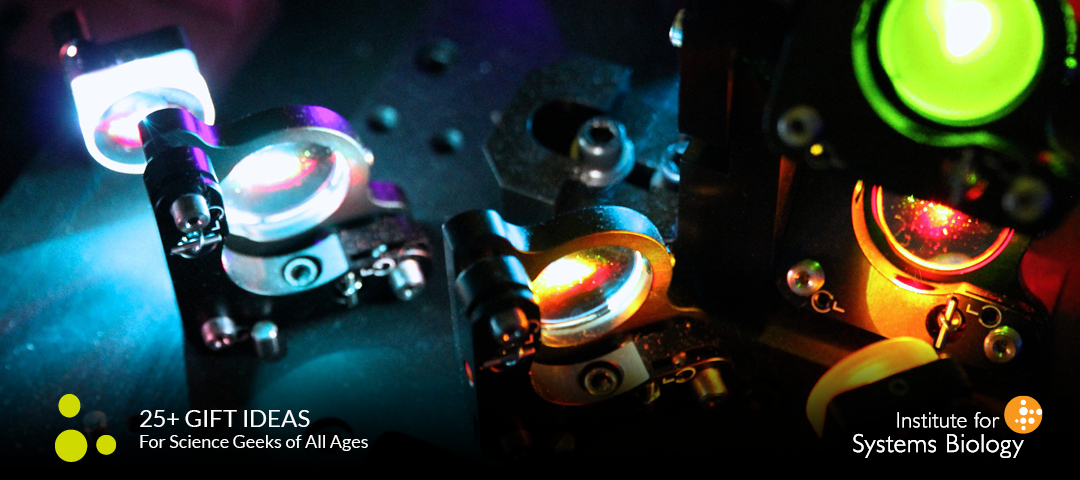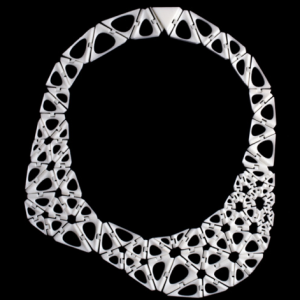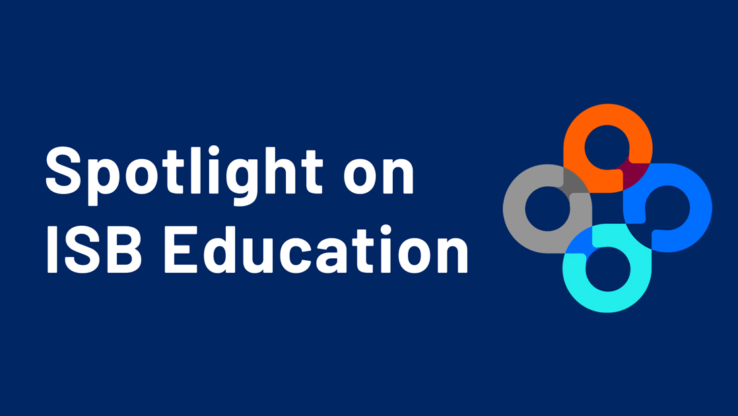25+ Gifts for the Science Geek in Your Life
 isbscience.org/news/2014/12/09/isb-scientists-on-what-to-buy-for-the-geek-in-your-life/
isbscience.org/news/2014/12/09/isb-scientists-on-what-to-buy-for-the-geek-in-your-life/
(Above image: lasers in a cell sorting instrument.)
BY ISBUSA
If you have a science buff/geek/future geek in your life, here are some gift ideas that our researchers at Institute for Systems Biology (ISB) have offered for your shopping pleasure. For kids, there are many options for “STEM toys” – i.e. toys geared toward science, technology, engineering and math. If you choose to purchase any of these items via Amazon.com, we would appreciate it if you purchase them through the AmazonSmile program, which donates 0.5% of the sale to ISB. We are a non-profit and, well, big science is expensive. Thank you for your support and happy gift giving!
BOOKS
The Science of Interstellar by Kip Thorne – A journey through the otherworldly science behind Christopher Nolan’s film, Interstellar, from executive producer and theoretical physicist Kip Thorne. 
Death By Black Hole And Other Cosmic Quandaries by Neil deGrasse-Tyson – Explores a myriad of cosmic topics from what it would be like to be inside a black hole to the movie industry’s efforts to get its night skies right.
The Forest Unseen: A Year’s Watch in Nature by David George Haskell – A grand tour of nature in all its profundity in a one-square-meter patch of old-growth Tennessee forest.
The Innovators: How a Group of Hackers, Geniuses, and Geeks Created the Digital Revolution by Walter Isaacson – A revealing story of the people who created the computer and the Internet.
Alan Turing: The Enigma (The Book That Inspired the Film ‘The Imitation Game’) by Andrew Hodges – Acclaimed biography of the founder of computer science, with a new preface by the author that addresses Turing’s royal pardon in 2013, and the definitive account of an extraordinary mind and life.
CIRCUITS
Circuit Scribe (as seen on Kickstarter) – You can draw your own circuits with this special pen and magnetic modules.
Elenco Snap Circuits SC-300 Physics Kit: Kids can build more than 60 snap-together parts to build their own circuit projects.
GASTROGEEK
Mr. Beer Premium Gold Edition Home Brewing Craft Beer-Making Kit for the beer geek in your life.
Sansaire Sous-Vide Immersion Circulator for those who want to try sous-vide cooking. Made by a Seattle company and as seen on Kickstarter.
Modernist Cuisine at Home by Nathan Myhrvold and Maxime Bilet is the cookbook for those interested in modernist techniques, including sous-vide and pressure cooking.
Chemist’s Cocktail Kit, which includes a flask decanter, graduated test tubes, and a stainless steel shaker for your cocktail needs.
JEWELRY & SUCH
Serotonin Necklace or Caffeine Molecule Necklaces for those who want to express themselves with accessories.
Science-themed fabric from test tubes and solar system to circuit boards and periodic tables; great for crafters.
LAB
Microscope for budding scientists. 
Magnifying glass for young children to explore their worlds.
Be Amazing Lab-in-a-Bag offer young children an introduction to different types of sciences.
The Magic School Bus science kits include engineering lab, chemistry lab, microscope lab and many others.
MEMBERSHIPS & SUBSCRIPTIONS
Pacific Science Center (Seattle), Woodland Park Zoo (Seattle), Point Defiance Zoo (Tacoma)
Science magazines such as Discover, Scientific American, Popular Science, Smithsonian, National Geographic; (for the professional) Science and AAAS membership
The Young Scientists Club membership deliver science kits to your door every month.
MAKER KITS
Make-Do kits are great for kids who love making things with cardboard boxes and other found objects.
3Doodler 3D Printing Pen for those who want to try 3D printing.
MICROBES
Giant microbes stuffies are a huge hit among scientists. You can also get Cross-stitch Microbe Kits.
TOYS
Strandbeest kit is a mini version of the artificial life Strandbeest by artist Theo Jansen.
LEGO Research Institute – Set includes paleontologist, astronomer and chemist mini figures, and scenes.
Magnetic Thinking Putty is like any other thinking putty except that it responds in interesting ways to magnets.
COOL MISCELLANY
Robot Book Ends for kids; powder-coated and laser-cut. 
Nervous System jewelry, lighting and housewares made by generative design and 3D printing.
Jelly Fish Tank and moon jellyfish kit.
Raspberry Pi Kit credit-card sized computer.
AquaFarm and fish tank.
Heroes of Science Ornaments are laser-cut on wood.
Newton’s Cradle is a classic device that demonstrates the laws of conservation of momentum and energy.









